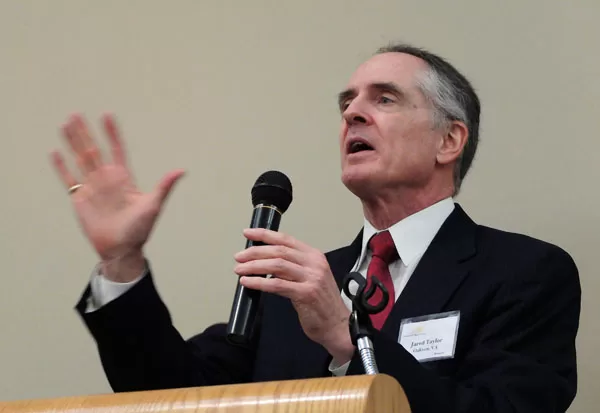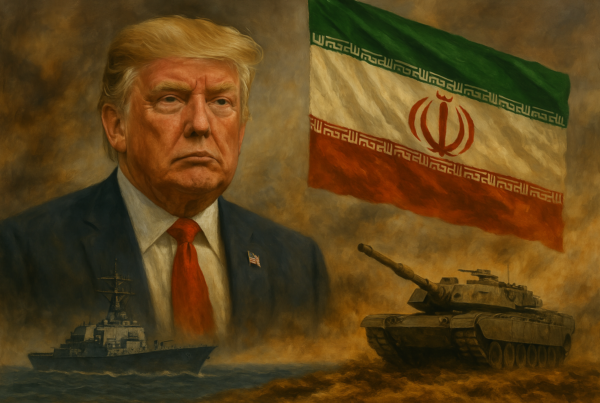Renowned White nationalist and founder of American Renaissance, Jared Taylor, was scheduled for a Europe tour this May, with planned visits to numerous nations, including France, where he intended to engage with author Renaud Camus, amongst others, and conduct seminars. For months, my community organised these get-togethers and talks, as well as informed all our readers and subscribers about Taylor’s impending visit. I personally am the publisher of a book authored by Taylor (If We Do Nothing) that is due for a French release soon.
Upon arriving in Zurich, Switzerland, Taylor was met with the harsh revelation that his Schengen zone ban, imposed back in 2019 at the behest of Poland, had been extended for two additional years, covering the current year, 2023. Taylor, an American citizen, is a living example of a non-citizen of the European Union who has been deemed a threat by an EU country, leading to a ban on his presence in all Schengen countries.
The Schengen agreement grants free movement and removes border controls for EU citizens. Had Taylor set foot in France without this travel prohibition, he could have traversed to Poland without any legal obstacles from the Polish government. Consequently, the Polish authorities managed to persuade all Schengen countries to deny entry to Jared Taylor. Most countries did not require much persuasion as Taylor’s views are largely deemed intolerable in nations such as France, Germany, Belgium, and the Netherlands.
However, a pertinent question that arises is why a conservative, identity-driven nation like present-day Poland would target Jared Taylor, a right-wing intellectual known for his calm demeanour and refined disposition, who has never endorsed violence and whose profound views align well with the stance of the Polish authorities.
The reason for this remains unclear, particularly as Taylor himself, in a short video on Odysee, expressed his lack of understanding behind Poland’s decision (the video can be seen here). The absurdity of the situation is staggering: imagine being declared persona non grata in Europe without any prior warning or explanation, only to discover this shocking fact after an exhausting intercontinental flight.
In my view, I find it unlikely that Poland is fearful of Taylor’s racialism or his controversial ‘political extremism’. Quite a few registered nationalist parties in Poland share comparable views to Mr Taylor on ethnocultural issues. If this was the rationale Poland used to convince the Schengen members to reject Taylor, I am sceptical about its validity. A plausible explanation, in my opinion, would be Taylor’s affiliations with certain Russian nationalist factions and a conference he is alleged to have attended in 2014 alongside Russian nationalist Alexander Dugin. Given the historical tensions between Poland and Russia, Taylor might indeed be perceived by Poland as a potential intellectual ally of Russia’s Putin.
Regular followers of my work will know that I support Ukraine in the current Russia-Ukraine conflict, grounded on nationalist motives. While I shall detail my political position in a future article, I do lament Poland’s decision to cause unnecessary friction with an influential American nationalist like Jared Taylor. The Right presently holds power in Poland, but for how long? The progressive Left is gradually gaining strength, as is the trend in many countries. In time, I am certain it will be on the brink of success, backed by numerous Western leftist associations and organisations. To me, Poland’s decision reflects a lack of foresight. Eventually, right-wing governments in Central Europe will need the promotional, intellectual and financial backing of the American Right to retain their hold on power.
While it is understandable for pro-Russian propaganda to be restricted in Poland, a simple warning to Mr Taylor that any positive endorsement of Russia would be forbidden on Polish soil during his future visits could have sufficed. I think we can all agree that Taylor would have likely complied with this condition out of respect for the countries in which he voices his opinions. There are rules to abide by, but they need to be communicated in advance.
I present you with a significant problem, a problem to which I currently have no solutions. European nations are all currently facing threats from an increase in left-wing ideologies, resulting in more victories for the Left in numerous elections and more population displacement (the ‘Great Replacement’ of Europe’s White populations with new African or Oriental inhabitants). However, in many other respects, the interests of all these nations diverge. Never has Europe needed to be so united in self-preservation, yet it remains, as it almost always has been, divided. The symbolic unity of the Visegrad group, which appeared to be strengthening ten years ago, is now less visible: Orbán’s Hungary strives to maintain favourable relations with Moscow, whereas Poland is engaged in a bitter struggle against Russia, considering those who continue to engage in dialogue with Putin as possible traitors.
- Romanian nationalists primarily aspire to reunify Moldavia with Romania.
- Serbs and Croats continue to harbour mutual animosity.
- Hungarian nationalists believe a third of Romania rightfully belongs to them.
- The French are resentful and envious of Germany’s economic success.
- The Germans, once renowned for their ‘racism’, now champion anti-racism.
- The Italians regularly vote for the Right, an action that cannot be criticised. However, every time a right-wing party gains power, it underwhelms and only partially delivers its promised programme.
For us pan-Europeans, this widespread incoherence is disheartening. At a time when nearly half of Europe is governed by centre-right or conservative parties, it still feels as if we are making no headway, with everyone prioritising their immediate interests. So, what is the way forward?
While I do not currently have a miracle solution, I would like to propose ‘attitude and strategic moderation’. The construct of a White Europe, from Lisbon to Vladivostok, will not be possible as long as Central European countries favour a chauvinistic nationalism that alienates their neighbouring countries and blindly aligns with the liberal countries of the West in their perpetual struggle against Moscow. Similarly, we will not be able to conceptualise a White Europe as long as Russian imperialism is directed at some Central European countries with the aim to include them in the Russian nation or to dominate them by military force.
Our role as White European thinkers is to find the points of balance that will facilitate the emergence, in the future, of a ‘European nationalism’, a nationalism that will unite all the White nations of the continent in a project of development and expansion, with adversaries located outside of Europe, never within its own confines.
Such a concept may seem naive today, especially amidst the brutal war in Ukraine, but it remains our only hope: the pursuit of common interests that will be more powerful than the deep-rooted historical antagonisms between all the White nations of Europe and the world.








Poland is likely appeasing their American-NATO overlords by banning Jared Taylor. It’s such a silly thing considering the average Polish person probably believes everything that Jared Taylor believes.
I never knew this. What’s the history behind it?
Fascinating opinion piece. It raises the question why – if Poland has genuinely Right wing parliamentarians in government – Polish MPs can’t reverse the persona non grata status of Mr. Taylor?
I agree with the author that a request to not champion Moscow’s war aims while visiting Poland is reasonable, and would certainly be respected by Mr. Taylor. This should be sufficient.
An anti-Russian writer quoting without crediting Thiriart, “from Lisbon to Vladivostok.” is a joke I hope.
Thiriart is more-or-less the start of the entire current that Dugin and related forces have built their ideas on.
Very true. I wonder if Thiriart (and thus Dugin) got the idea of a Euro-Russo order from Yockey. Thiriart was a member of the European Liberation Front after all.
Is this “understandable”? Total trash author. Pure enemy ideas and pro-censorship.
Disgraceful.
It’s a little deeper than that. Many – *many* – European nationalists in France, Poland, and elsewhere, while they despise globohomo, do not support Russia’s military action against Ukraine.